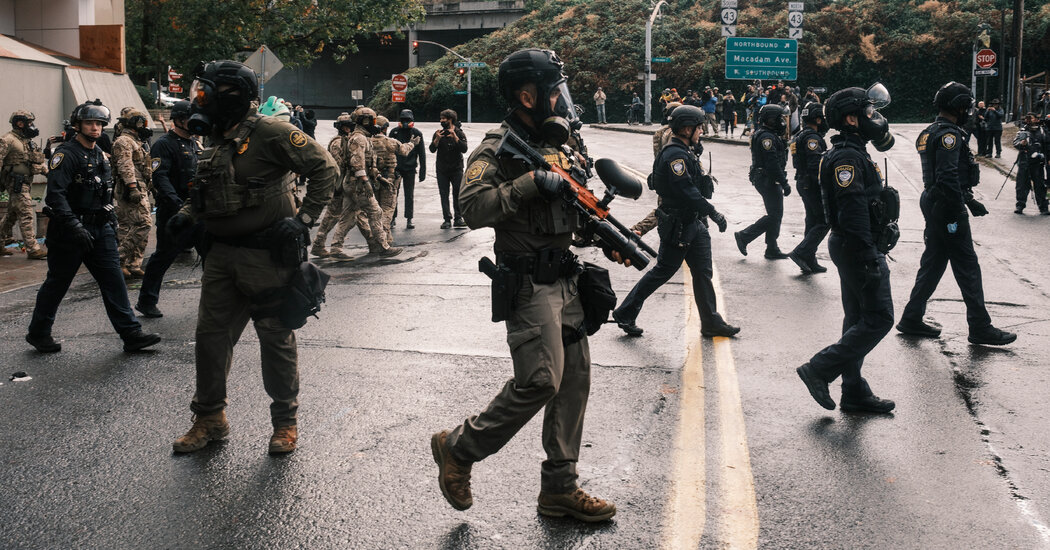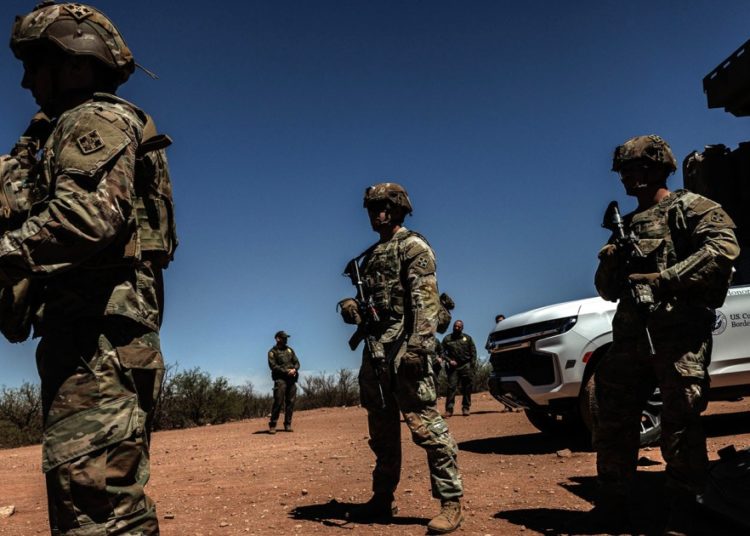A federal judge ruled late Sunday that the Trump administration cannot send in National Guard soldiers to protect an Immigration and Customs Enforcement building in Portland, Ore., that has been the site of daily protests, at least until she makes her final decision in the case.
Judge Karin Immergut, of the U.S. District Court for the District of Oregon, presided over a recent fast-tracked trial after state and city officials sued to fight the federal government’s deployment plans in Oregon. On Sunday night, she said she will issue a final ruling by 5 p.m. local time on Friday. She said she needed more time to fully consider the “voluminous” evidence and three days of testimony she heard.
But in explaining her preliminary injunction, Ms. Immergut, a Trump appointee, said the federal government had not proven its case based on what she had reviewed so far.
Ms. Immergut also said that the evidence she had considered to this point led her to believe that the proposed deployment violated the U.S. Constitution’s 10th Amendment, which says that powers that the Constitution does not give to the federal government belong to the states.
At the trial, Justice Department lawyers argued that the president’s planned use of federalized soldiers was justified for two of three reasons allowed under a statute known as Title 10. The protests in Oregon represented a rebellion or a planned rebellion against the federal government, and the demonstrations have prevented ICE officers from doing their jobs without additional help, government lawyers argued.
The other reason the president is allowed to use Guard troops under federal law would be to defend against a foreign invasion.
But Ms. Immergut wrote that federal lawyers had not proven either a rebellion was imminent or that ICE could not enforce the law using existing resources.
Though the protests in Portland have been mostly peaceful and small, they have turned violent on occasion, with demonstrators blocking cars from entering or exiting the ICE facility, and federal officers responding by firing pepper balls and tear gas.
President Trump had announced on Sept. 27, via Truth Social, that he planned to federalize and deploy members of the Oregon National Guard to respond to the demonstrations against federal immigration policy.
Oregon and Portland sued to stop the deployment, and Judge Immergut issued a temporary restraining order blocking the use of Oregon soldiers on Oct. 4. Later that day, the Department of Defense sent 200 California National Guard soldiers to Oregon and told members of the Texas National Guard to prepare to work in Oregon. Judge Immergut then issued a second temporary restraining order blocking the use of any National Guard soldiers in Oregon. The second temporary restraining order was scheduled to expire at 11:59 p.m. Pacific time on Sunday.
Lawyers for Oregon, Portland and California argued that the federal government already had the resources to handle crowd control at the ICE building, and that federal agents had used force indiscriminately.. The lawyers used staffing records and nightly reports from the Portland Police Bureau and the federal government to portray the protests as largely under control before the president’s announcement inflamed and expanded the crowds.
And they framed the debate as one that cuts to the core of constitutional principles.
“This is, I think, one of the most significant infringements on state sovereignty in Oregon’s history and now California’s history,” Scott Kennedy, a senior assistant attorney general for Oregon, told the judge in his closing argument.
Justice Department lawyers offered a different account of events in Portland. They argued that federal workers at the ICE building had been too distracted by the protests to meet the administration’s demand: to double the daily immigration arrests made in the region.
Witnesses from the Federal Protective Service and ICE testified that federal officers had often been outnumbered by protesters, who had threatened and doxxed them, and thrown rocks and shot off fireworks at them. They also said that federal officers had received no help from the Portland Police Bureau.
“We’ve seen agitators target the Portland ICE building with violence, intimidation and threats over and over,” Eric Hamilton, a Justice Department lawyer, said in his closing argument on Friday. “This is a rebellion against immigration authority.”
Ms. Immergut disagreed with that argument in her preliminary injunction. She noted that the deputy regional director of the Federal Protective Service, the federal law enforcement agency responsible for guarding government buildings, had testified that neither he nor his boss had been consulted about the proposed Guard deployment or had asked for the soldiers.
If the judge’s final ruling turns upholds her Sunday ruling, federal lawyers are expected to appeal the verdict. A similar case involving the president’s deployment of Texas National Guard soldiers to Illinois is before the U.S. Supreme Court.wash
The post Judge Rules Against Trump’s Oregon National Guard Deployment appeared first on New York Times.




